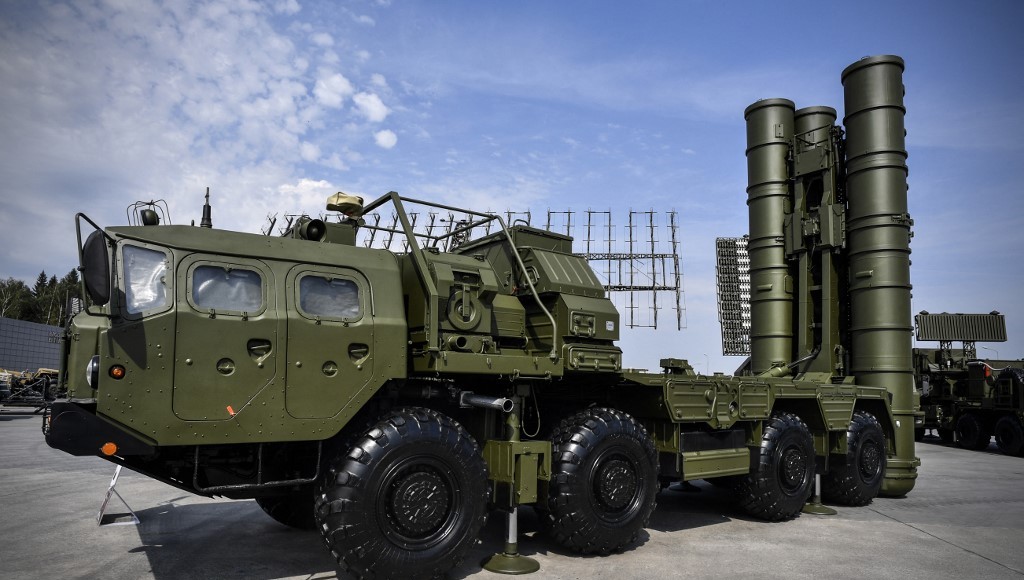Fahrettin Altun, Turkish President Recep Tayyip Erdoğan’s director of communications, on Wednesday said in a letter to the editor of The Wall Street Journal that the idea of Turkey sending its Russian-made S-400 missile defense system to Ukraine to help it fight the invading Russian forces is “quite unrealistic.”
In the letter Altun commented on “a rather creative idea” that Turkey send its S-400s to Ukraine to address the country’s urgent needs and “repair the relationship between the US and Turkey” by paving the way for the sale of US Patriot batteries to Turkey and Turkey’s “reinstatement in the F-35 consortium,” which was put forward by Paul Kolbe in a WSJ op-ed on March 18.
“Though quite unrealistic today, this idea presents an opportunity to discuss the problems Turkey has experienced lately with the West. All US accounts of Turkey’s decision to purchase the S-400 from Russia appear to omit that Turkey approached America first. The US, however, refused to sell the Patriot system,” Altun said.
The Erdoğan aide added that Turkey’s “unlawful removal” from the F-35 program made it hard to take seriously “the metaphorical carrot of Turkey’s reinstatement.”
Noting that it would take “confidence-building measures, not so-called informal proposals” to repair the relationship between Ankara and Washington, Altun urged the West and the US to deliver F-35 fighter jets and Patriot batteries to Turkey “without preconditions.”
“At this point, it is the responsibility of the West and especially the US to normalize relations with Turkey—a NATO ally of 70 years and a stabilizing actor in critical regions,” the aide said.
İsmail Demir, the head of Turkey’s Presidency of the Defense Industry (SSB), also said on Wednesday Turkey is not thinking of abandoning its Russian S-400 missile system despite suggestions by the US that it send the weapons to Ukraine for help in its defense against Russia, according to Russian newspaper Izvestia.
“This is not a matter of discussion for us. This issue was discussed extensively in the past, and we are continuing our cooperation with the Russian Federation,” Demir said.
The statements by Altun and Demir came amid recent reports suggesting that the United States has informally raised with Turkey the unlikely possibility of sending its S-400 missile defense system to Ukraine to help it fight invading Russian forces.
US officials have floated the suggestion over the past month with their Turkish counterparts, but no specific or formal request was made, sources familiar with the matter told Reuters earlier this week.
Despite warnings from the United States and other NATO allies, Erdoğan brokered a deal worth $2.5 billion with Russian President Vladimir Putin for the S-400 missile system in 2017.
Turkey started taking delivery of the first S-400s in July 2019 despite Washington’s warnings and the threat of US sanctions. In response, Washington removed Turkey from the F-35 Joint Strike Fighter program, in which Ankara was a manufacturer and a buyer. Turkey has not yet used the missile system since its purchase.
The S-400, a mobile surface-to-air missile system, could pose a risk to the NATO alliance as well as to the F-35, America’s most expensive weapons platform, according to Turkey’s Western allies.
Washington imposed sanctions in December 2020 on Turkey’s military procurement agency for its purchase of the system under the Countering America’s Adversaries Through Sanctions Act, or CAATSA, which mandates penalties for transactions deemed harmful to US interests.
SSB chief Demir and three other officials were targeted by the sanctions, which include a ban on all US export licenses and authorizations to SSB as well as asset freezes and visa restrictions on Demir and the other individuals.
Washington still hopes to persuade its ally to “walk away” from the Russian system, and calls to this effect have increased following the launch of the Russian invasion of Ukraine.



